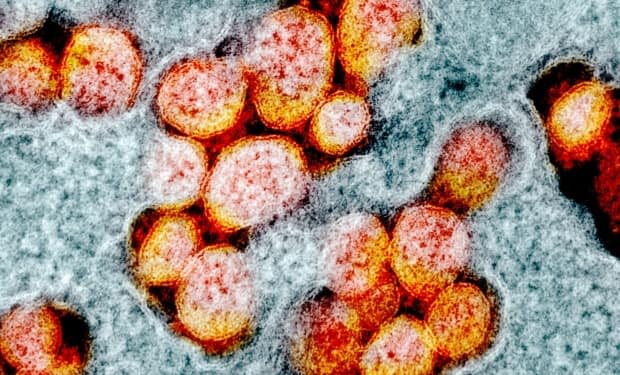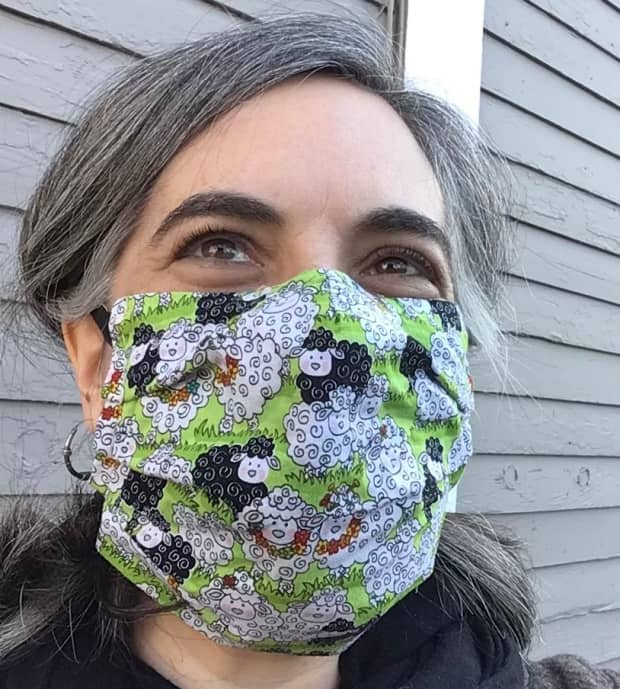N.B. COVID-19 roundup: 9 new cases in 4 zones

New Brunswick is reporting nine new cases of COVID-19 on Monday, six of which are in the embattled Edmundston region, Zone 4.
The other three cases include one each in the Moncton region, Zone 1, Fredericton region, Zone 3, and Bathurst region, Zone 6.
"We are seeing more travel-related cases and transmission to household members when self-isolation measures are not strictly adhered to, so it is imperative that everyone who is self-isolating continue to do so for the full 14 days," Chief Medical Officer of Health Dr. Jennifer Russell said in a statement.
"Failure to do so could be putting your loved ones at risk."
There are now 158 active cases in the province.
Twenty-one people are hospitalized with the virus, eight of whom are in intensive care.

The new cases break down as follows:
In the Moncton region (Zone 1):
A person aged 20 to 29.
This case is travel-related.
In the Fredericton region (Zone 3):
A person aged 40 to 49.
This case is travel-related.
In the Edmundston region (Zone 4):
Three people aged 19 and under.
Two people aged 40 to 49.
A person aged 60 to 69.
Four of these cases are contacts of previously confirmed cases and the other two are under investigation.
In the Bathurst region (Zone 6):
A person aged 40 to 49.
This case is travel-related.
New Brunswick has confirmed 1,797 cases since the start of the pandemic, including 1,605 recoveries. There have been 33 COVID-related deaths.
Public Health conducted 1,026 tests on Sunday, for a total of 276,501.
Reassuring data about vaccines and variants
Epidemiologists say some reassuring data is emerging about COVID-19 vaccines.
It looks like the current vaccines still provide fairly good protection against serious illness caused by the increasingly common COVID-19 variants, said Ashleigh Tuite of the University of Toronto's Dalla Lana School of Public Health.
Meanwhile, the Moderna shot has been updated to cover the variant first identified in South Africa, said Tuite.
The new version is undergoing a short clinical trial and may be available in a couple of months she said.
Other emerging data suggests the Pfizer-BioNTech and Moderna shots, which both use messenger RNA, or mRNA, to carry instructions into the body for making proteins that prime it to attack a specific virus, may prevent a person from getting sick or being able to infect others, Tuite said.

But it's good to have more than one type of vaccine in the "arsenal," said Susan Kirkland of Dalhousie University's Department of Community Health and Epidemiology.
"They act in different ways," said Kirkland, and "they have different effects on antibodies or T cells."
That increases the odds one or more of them will be effective against new variants, she said.
Some people who received a first dose of the AstraZeneca-Oxford vaccine are wondering what they'll get for their second dose since it's now not recommended for people under 55.
Getting a different shot may not be a bad thing, said Kirkland.
"It may, in fact, give you a stronger response, not a weaker response," she said.
Studies are happening now to see what the best options are.
It's too soon to say whether "mixing and matching is a thing," said Tuite.
She expects more information will be available within a month or two.
Either way, she doesn't think anyone will have to restart their vaccine series.
Vaccination update
New Brunswick has administered more than 200,000 doses of COVID-19 vaccine, with 27.5 per cent of the eligible population aged 16 and over having received at least one dose, the Department of Health said Monday.
Clinics are underway to provide second doses at long-term care homes, including 4,900 second doses at 339 facilities this week.
Masks more important with variants

An infectious disease specialist and immunologist at Dalhousie Medical School says new COVID-19 variants make it more important than ever to wear a proper face mask.
Variants seem to be easier to spread and are now responsible for the majority of new cases, including major outbreaks in some provinces.
Dr. Lisa Barrett recommends wearing a mask that has three layers, made of tightly woven cotton with a filter in it.
"Not bandanas, not clear plastic shields — those don't work," said Barrett.
It's also key that the mask fits snugly over the nose and below the chin and doesn't gape at the sides, she said.
Wearing two masks isn't a bad idea, said Barrett, if you're comfortable doing so.
New possible exposure
Public Health has identified potential public exposure to the virus in Edmundston:
Familiprix, 131 de l'Église St., on April 8, between 10 a.m. and 1 p.m.
Corrected recent possible exposures
The dates and times for some recent possible public exposures in Saint John have changed on the government's website.
"Through follow-up tracing work [Monday], it turns the individuals provided the wrong dates by mistake," Department of Health spokesperson Bruce Macfarlane said in an email.
The new information information includes:
Service New Brunswick, 15 King Square North, on April 15 between 3 p.m. and 3:45 p.m.
Rocky's Sports Bar, 7 Market Square, on April 15 between 4 p.m. and 6 p.m.
"We quickly updated the website to reflect the individual's mistakes," Macfarlane said.
He did not respond to questions about why no public correction was issued or what impact the delayed notification might have on individuals who should isolate.
Other recent possible exposures
Public Health has identified possible public exposures to COVID-19 in Edmundston:
Jean Coutu, 77 Victoria St., Edmundston on April 16, between 1: 30 p.m. and 2 p.m.; on April 14, between noon and 12:45 p.m.; and on April 12, between 3 p.m. and 3:30 p.m.
Public Health also identified a traveller who may have been infected while on the following flights on April 15:
Air Canada Flight 318 – from Calgary to Montreal, departed at 11:53 a.m.
Air Canada Flight 8906 – from Montreal to Moncton, departed at 7:08 p.m.
People who were at these areas are eligible to be tested for COVID-19, even if they are not experiencing symptoms.
What to do if you have a symptom
People concerned they might have COVID-19 symptoms can take a self-assessment test online.
Public Health says symptoms shown by people with COVID-19 have included:
Fever above 38 C.
New cough or worsening chronic cough.
Sore throat.
Runny nose.
Headache.
New onset of fatigue, muscle pain, diarrhea, loss of sense of taste or smell.
Difficulty breathing.
In children, symptoms have also included purple markings on the fingers and toes.
People with one of those symptoms should:
Stay at home.
Call Tele-Care 811 or their doctor.
Describe symptoms and travel history.
Follow instructions.

